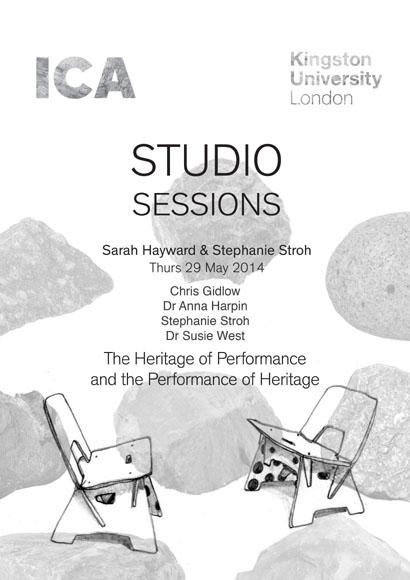Studio Sessions: Capturing the Intangible: The Heritage of Performance and the Performance of Heritage
29 May 2014
The first of a two-part discussion related to 'Capturing the Intangible', this discussion aims to introduce and explore the notion of intangible heritage and its relationship with performance, focusing on specific examples of the use of performance within heritage practice.
A recent shift can be identified in the wider field of heritage discourse, which challenges materialist approaches to heritage, and re-conceptualises heritage as a cultural process. No longer universally accepted as being inherently contained within the physical and tangible fabric of historic sites, buildings and objects, heritage is now being re-defined as the practice and discourse which take place at sites and with objects. Some might even suggest that all ‘heritage’ is, in fact, intangible.
One of the topical discussion areas which have emerged from this relatively new debate centres on performance – and performativity – in heritage:
'Heritage wasn’t only about the past – though it was that too – it also wasn’t just about material things – though it was that as well – heritage was a process of engagement, an act of communication and an act of making meaning in and for the present'
- (Smith, Laurajane (2006) The Uses of Heritage, Oxon, Routledge, p. 1)
www.capturingtheintangible.wordpress.com
Speakers include:
Chris Gidlow, Live Interpretation Manager at Historic Royal Palaces; Dr Anna Harpin, senior lecturer in the drama department at Exeter University, and co-author (alongside Juliet Foster) of Madness, Performance, Psychiatry: Isolated Acts (Palgrave, 2014); Stephanie Stroh, PhD student at Kingston University, researching Theatricality and Embodiment in Post-Museum Practice; Dr Susie West, lecturer in Heritage Studies at the Open University, and editor of Understanding Heritage in Practice (Manchester University Press and The Open University, 2010).
Led by staff and students in Art, Design, Architecture and Philosophy at Kingston University, Studio Sessions will engage a broad audience in discussion and debate about the future of these disciplines, and how they are increasingly important as ways of thinking about the world. As the venue for these sessions, the ICA Studio encourages debate and conviviality.
Studio Sessions are staged as part of the affiliation between the ICA and Kingston University’s Faculty of Art, Design and Architecture, and the Centre for Research in Modern European Philosophy.
To book a place please contact
For more on this series, visit studiosessionsblog.tumblr.com



